The discussion panel began with a question from CultHub editor Kateryna Hladka about the balance between state institutions, the Ministry of Culture, and independent artists, organisations, and communities. After all, there is a certain amount of tension in the cultural sphere.
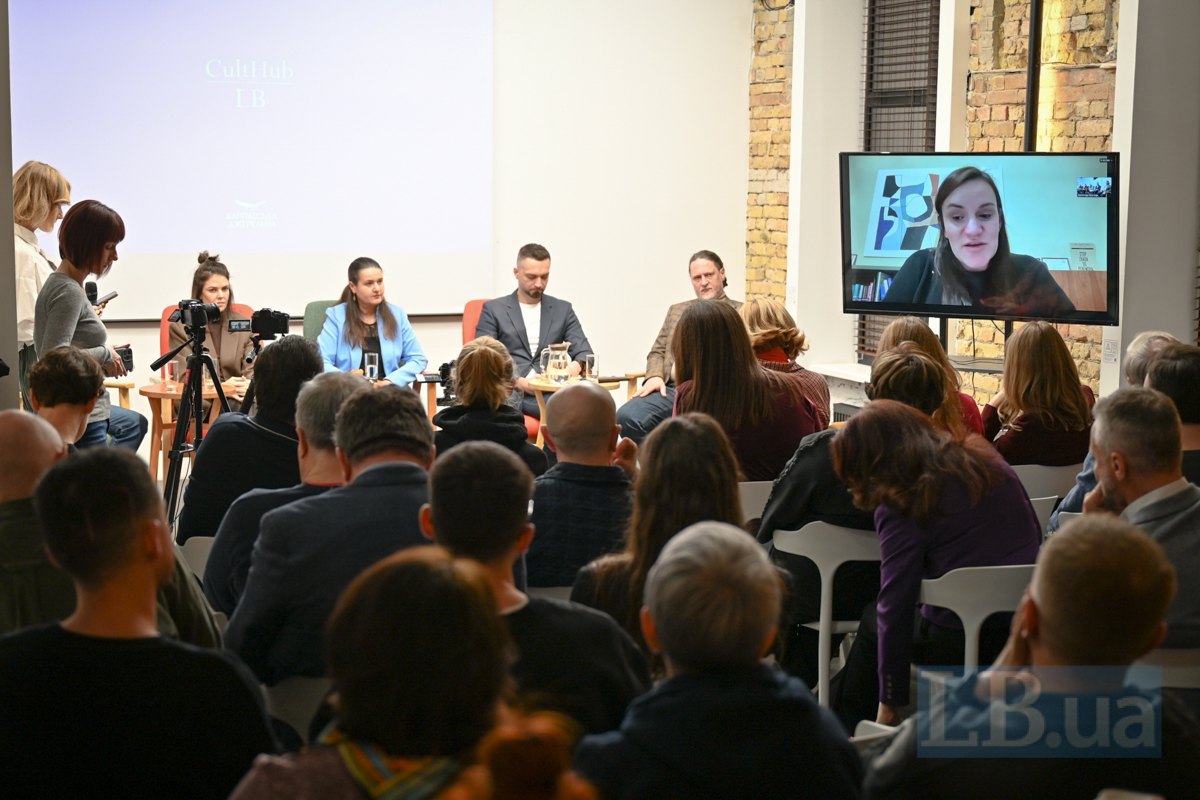
Minister of Culture Tetyana Berezhna responded that she is aware of her great responsibility as a newcomer to the position, and that one of her goals is to pay attention to independent artists and cultural practitioners.
"Culture is an extremely important tool and weapon. I am very aware of this and am actually happy that, in addition to what the Ministry of Culture is doing, there are many powerful NGOs and strong personalities in Ukraine who are also working in this area. I understand that sometimes our coordination is imperfect, but in any case, this is what I consider to be a priority task.”
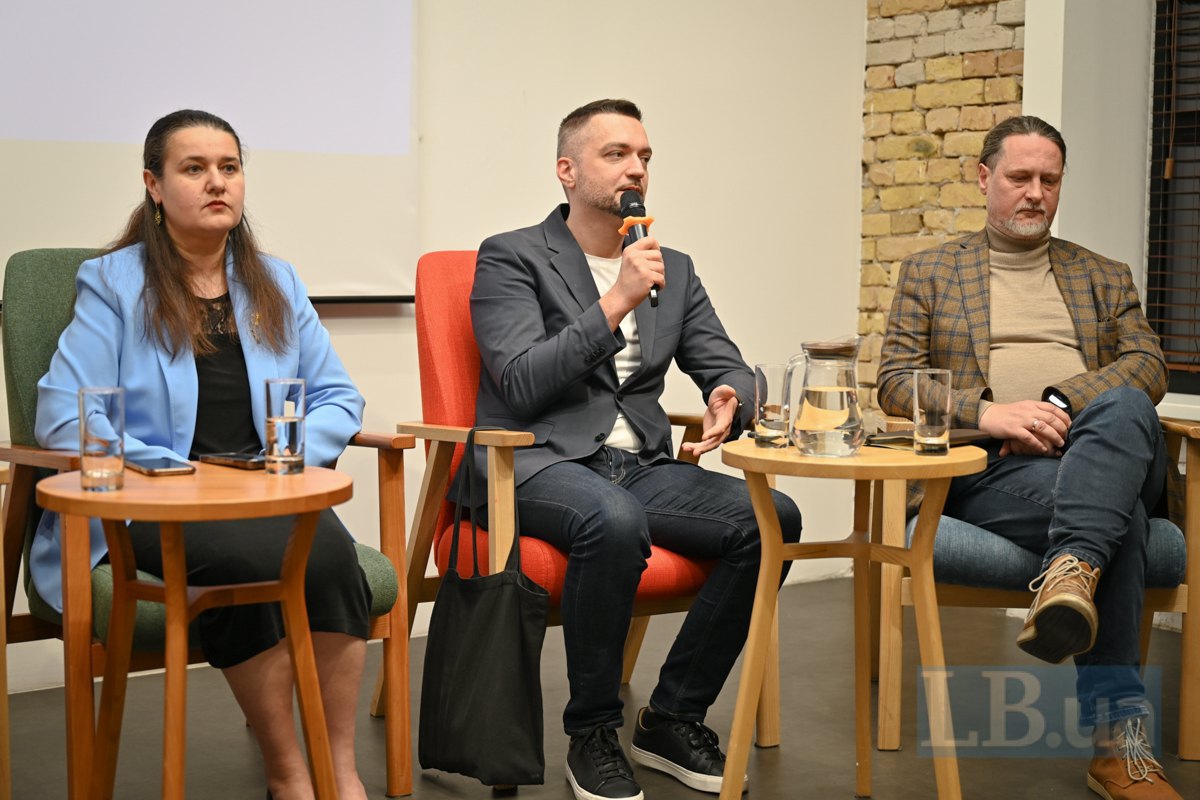
Both independent and state participants in the cultural process note a trend that the censorship of Russian culture is not as effective now as it was in 2022–2023. This was confirmed by Volodymyr Sheyko, Director General of the Ukrainian Institute, when asked how his team takes this into account in its strategy.
"Indeed, it seems that we are entering a different phase of the war, a different phase of our existence, and the rules by which cultural diplomacy works and, in our opinion, should work are also changing; they are not constant, but very fluid."
He also stressed the importance of long-term planning, even though this is not an easy task for Ukraine during wartime.
"The vast majority of diplomatic activity is not public — it takes place behind the scenes or is spread out over years, so it may not generate any newsworthy events here and now. And this is what we lack in principle: both society and the state. These are long-term plans. We understand that it is difficult to plan anything for the coming weeks or even for tomorrow, but this is what our foreign partners expect from us. Cultural circles and institutions abroad do not plan their work today for tomorrow. We have a different sense of time, and this must also be taken into account.”
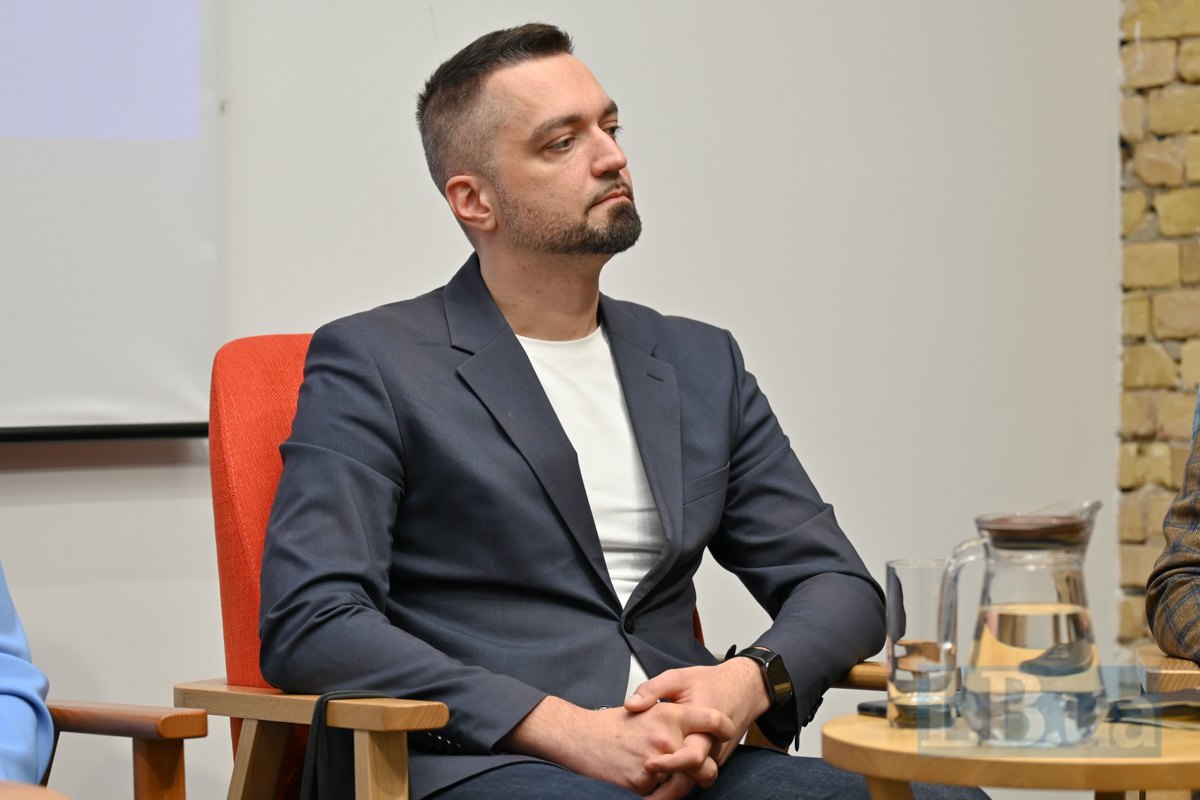
According to Volodymyr Sheyko, everyone wants to see large-scale projects, but this is regulated and limited by annual budget planning.
"We are really entering the realm of pragmatic competition with Russia. Emotional appeals no longer work. Sooner or later, we will reach a point where a hypothetical foreigner will have a purely pragmatic choice: should I go to a Russian event or a Ukrainian one today? And in his or her eyes, it will be a normal everyday choice, not an ideological one. Of course, we can be indignant and dislike people for this, but can we change it? That is why we say that Ukraine should not position itself in opposition to Russia, should not deny Russia and thereby talk about itself, but should truly generate and promote the culture that is in demand and that people want to see. And here I also want to say that the culture that is created in Ukraine for domestic consumption, for you and me, is not necessarily the same culture that Ukraine should represent abroad.
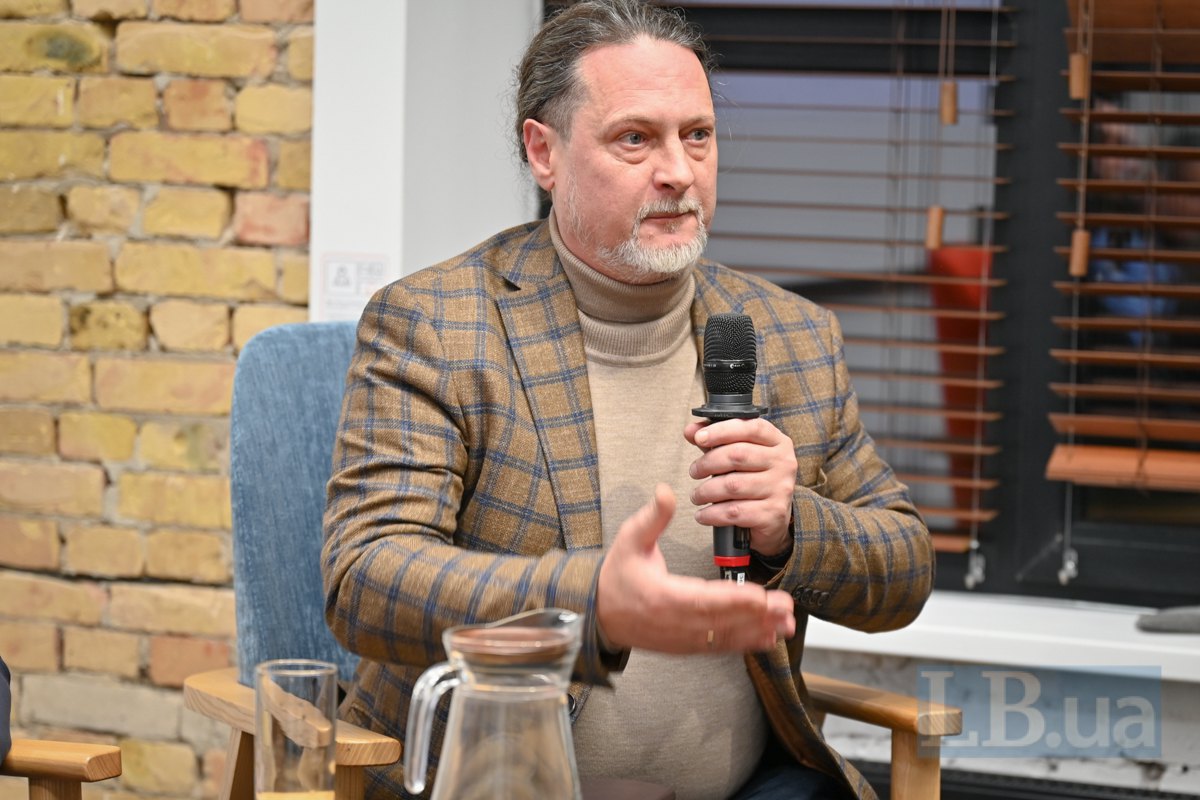
Producer and head of the Watch Ukrainian! Association Andriy Rizol shared his experience of organising and participating in an event significant for cultural diplomacy — the 30th anniversary of Ukraine's accession to the Council of Europe. On this occasion, the Ukrainian team created a comprehensive cultural programme in Strasbourg, which began on 30 October and continues throughout November and December 2025.
"Then we spent a long time looking for an opportunity and finally found it: to integrate into the start of the major Democracy Forum, which has been running in Strasbourg since 5 November. And we are proud, of course, that it began with a speech by the ambassador of the Spromozhni project, violinist Bohdana Pivnenko — a life-affirming speech. We are definitely not victims, and we have been communicating this narrative for more than a year and a half. We are a reliable, promising, and desirable partner that can contribute a lot to the development of European civilisation and make it better."
Performances by Ukrainian composers and musicians, a photo exhibition, and discussions are also continuing — Ukrainian culture will be heard loud and clear in Strasbourg until 13 December. And it is from a position of capability and interest, not from a position of victimhood, Andriy Rizol emphasised.
Among the speakers was Oksana Markarova, until recently Ukraine's ambassador to the United States and now chair of the board of Ukraine House/Ukrdom in Washington. The Ukrainian House project in Washington has become a truly vibrant and interdisciplinary space that constantly seeks points of dialogue with the local audience, not just within Ukrainian circles. Moderator Kateryna Hladka asked about the secret of this project's sustainability.
"When I was going to serve as ambassador, this was one of the issues we immediately discussed with the president. And he then accelerated things so much during his first visit when he said, 'I'm coming, you said we're opening the Ukrainian House'. And we were just looking for premises at that moment.
We wanted to create the Ukrainian House because there were many Ukrainian institutions everywhere in the United States except Washington: in New York, Chicago, Philadelphia. Churches, Ukrainian institutes, museums. And in Washington, there was only the embassy, even though it is the centre where we need to constantly talk about Ukraine and show Ukraine.”
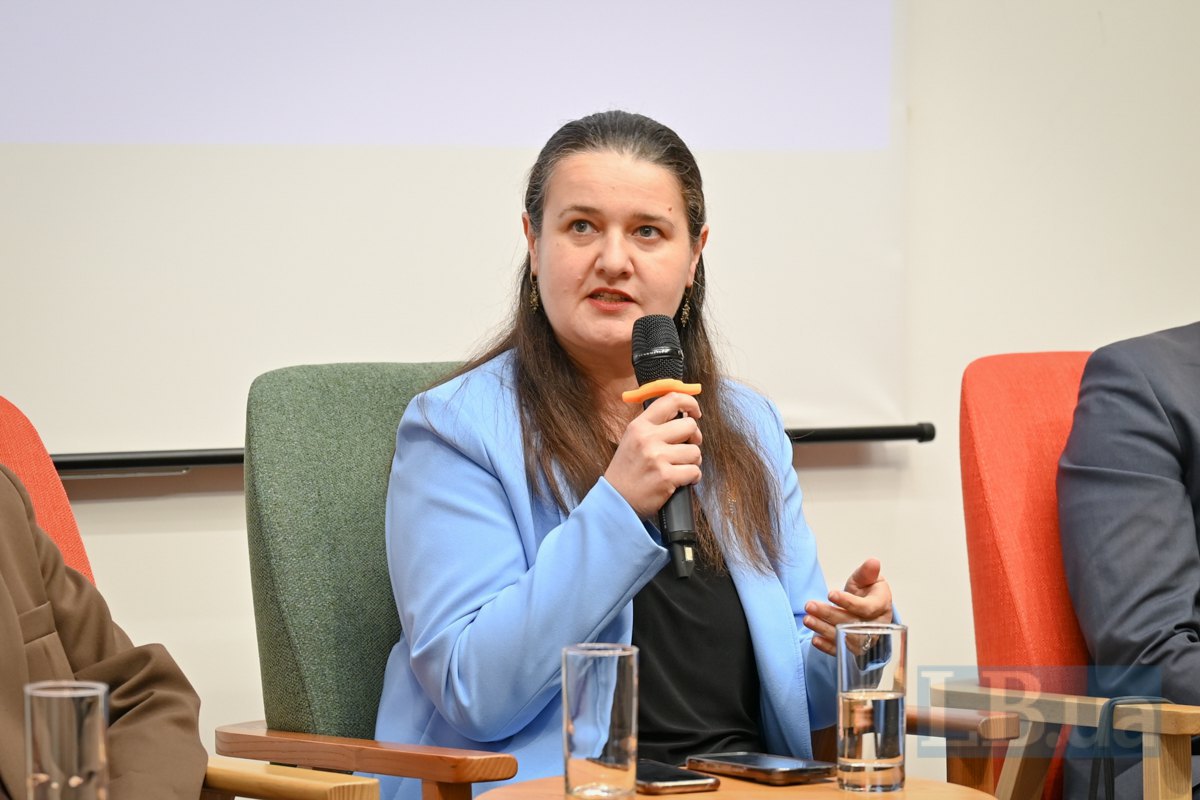
Oksana Markarova says that her first task is to communicate with Americans. In all projects and events, she and her team determine how many local audiences participated and what their interests are. The Ukrainian House was opened in 2021, before the full-scale invasion. And when it happened, it was a big challenge to decide what to show and what not to show. The team worked on these strategies all the time.
"First, the Russians want us to hide somewhere in a hole and sit quietly. We will not do that; we will continue to show that our culture is resilient and that we definitely have something to give to the world. Second, what we are defending is our contribution to the world."
If in 2022 Ukraine was on everyone's lips around the world, including in the US, then in the fourth year of the war the nature of this dialogue is changing: foreigners are getting tired of our war in the news and in projects.
"However, when you constantly tell people: war, war, war, sanctions, sanctions, sanctions — and they don't have war, we need, on the one hand, to constantly remind them about it, and on the other hand, not only to prevent them from getting tired of it, but to make them hear it and want it. That's why we need to come up with something else, captivate them with something else and insert what we want to say into it. I remember that in the first month of the war, we had an exhibition by Mykola Krychevskyy. And this exhibition was together with our French colleagues. We simply told the story, and our narrative was very simple: look, these are beautiful works, Mykola Krychevskyy is a super-talented artist. He was born in Kharkiv, studied under his father, a well-known artist, and then for some reason moved to Kyiv, and then to Uzhhorod, where he also studied under a well-known artist. And then, for some reason, he moved to Prague, and from Prague to Paris. Why did he end up in Paris, all the way from Kharkiv? Because we lost our independence in 1919. And he fled his home, moving away from the Russian troops. And then you just tell them: friends, this has already happened. Look, what we are going through now, we have already been through, but this time let's make sure that we don't flee, that we defend Kharkiv together," says the founder of the Ukrainian House in Washington.
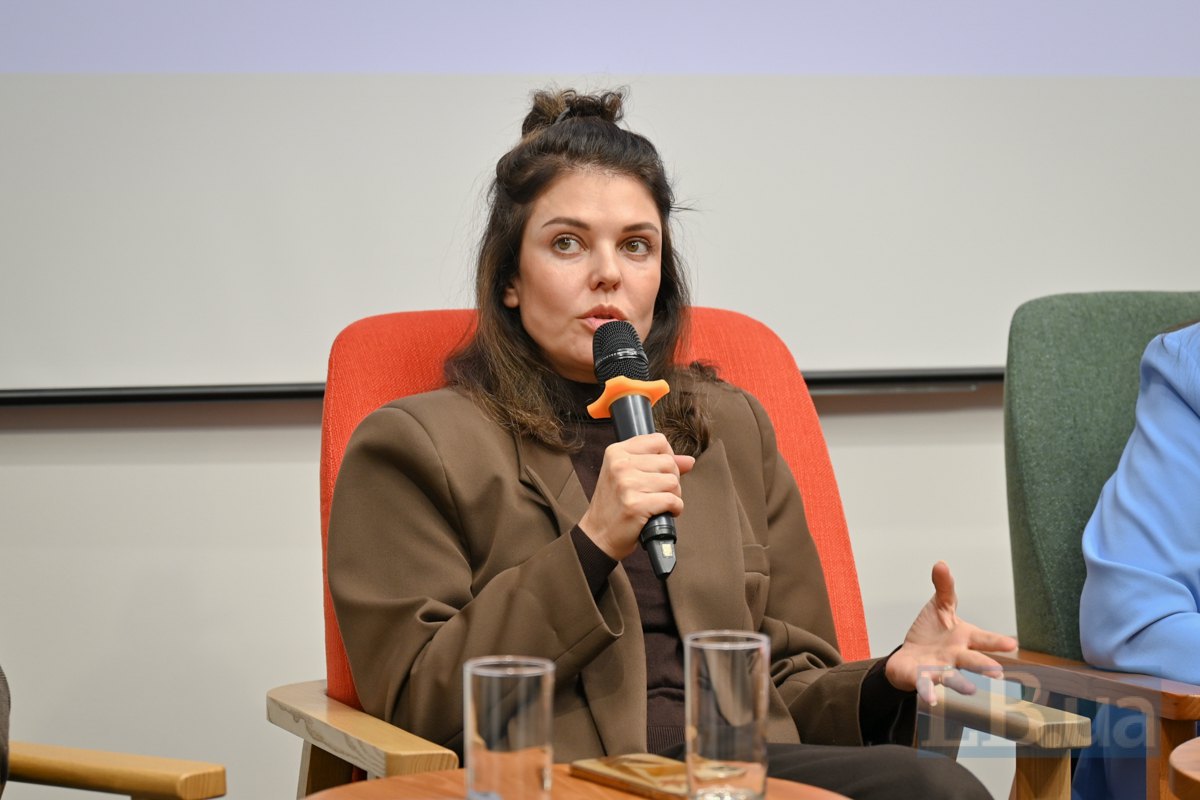
Art manager Kateryna Taylor has repeatedly noted that Ukrainian culture cannot and should not be reduced to a single message in the world. Because our value lies in the fact that we are polyphonic, that very different, interesting and worthy voices can coexist and interact within us.
"If we talk about a single message, it seems to me that we are such a multicultural and multi-religious country, in which so many different things have happened to us, that what we call our cultural identity would be very difficult to form into a single message if we had to say one sentence about Ukraine to the outside world, on the one hand. On the other hand, I would say that we should have a message box that we want to convey to the outside world, and it will be dynamic and changeable."
She also noted an important difference between Ukrainian and Russian culture: "What largely distinguishes us from Russia is that we don't need to rely on the state for everything, because we have created many independent, interesting cultural practices, many voices that are self-sufficient. It is worth talking about them to the outside world."
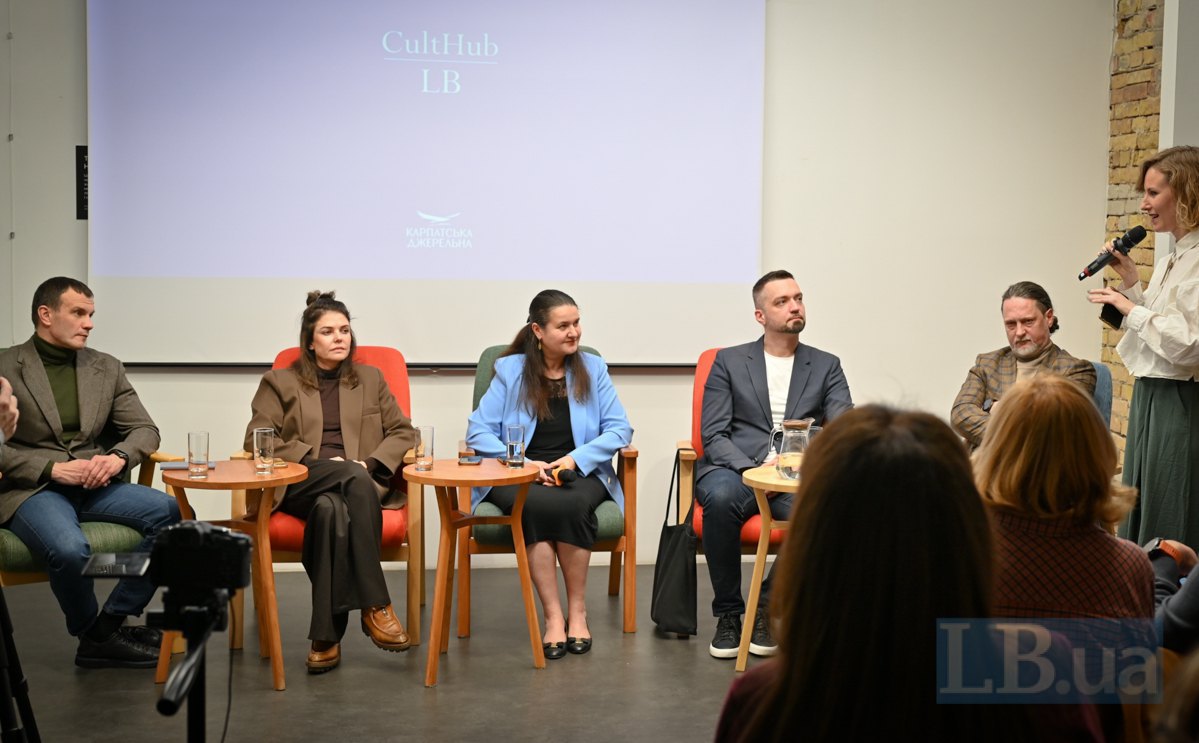
Kateryna Taylor skilfully attracts mass audiences to what might seem like niche cultural products and has a lot of experience in this area.
"When it comes to cultural projects, which are often very specific, I work in the field of visual arts. This is not popular culture, these are not large concerts that can attract hundreds of thousands of people, although we have managed to do so — this is possible thanks to the synergy and cooperation between various stakeholders. In other words, you can create a great cultural project that no one will attend. Therefore, on the one hand, the quality of the product is very important, which we often neglect because we do not take into account global competition and believe that we have done enough, when in fact it has long been insufficient. On the other hand, we often simply do not have enough resources to do what we want. But the bar must still be set higher."
Serhiy Ustenko, a partner in the CultHub project and a business representative, defines the importance of supporting culture and cultural diplomacy in particular:
"I consider culture to be a weapon. If we want to win this war, then, first of all, business must be an active participant in cultural processes, specifically in cultural diplomacy, because, in addition to artists and clients, there is another participant — the source of funding. And it is entrepreneurs who must be this source of funding.”
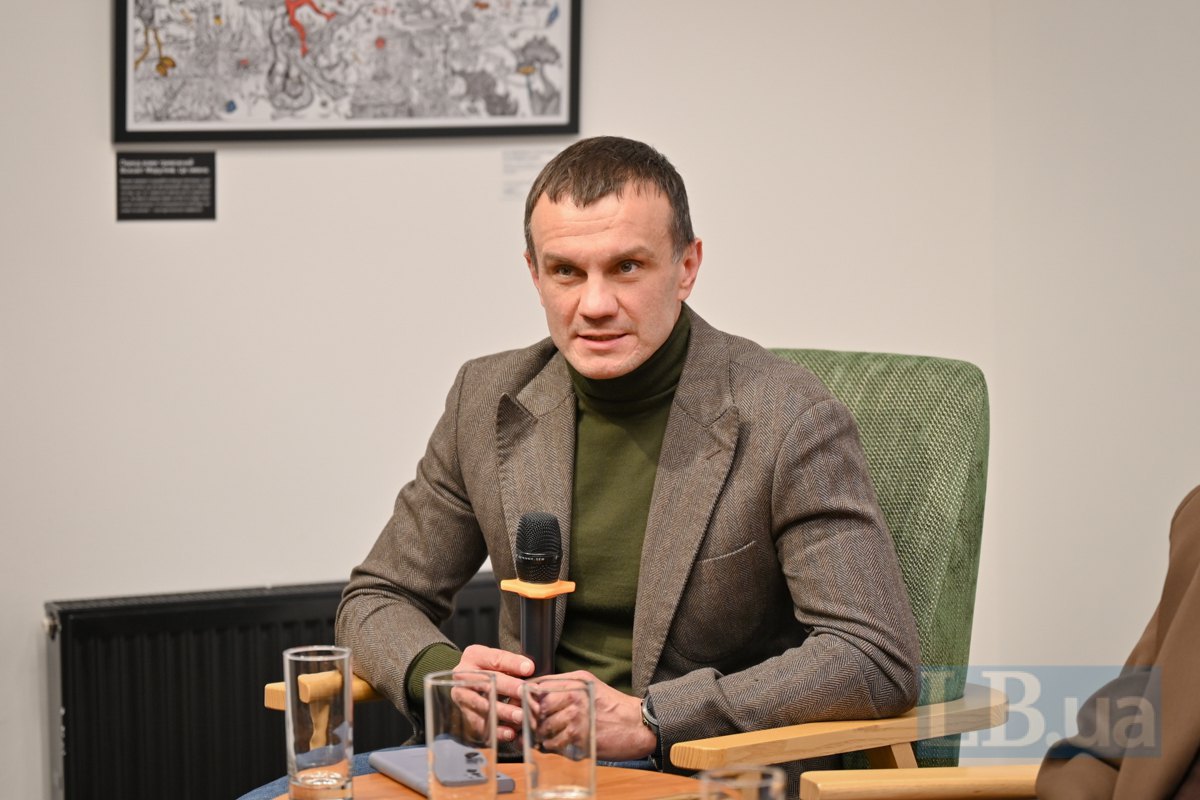
He also noted that funding in Russia and Ukraine differs significantly, not in our favour.
"We quite easily reject artists who have worked in this territory. The Russians do the opposite: anyone connected with the territory that is currently part of the Russian Federation is considered a Russian artist. We do the opposite. If an artist has created here and there, we usually reject them. They are Russian artists, their work is Russian.”
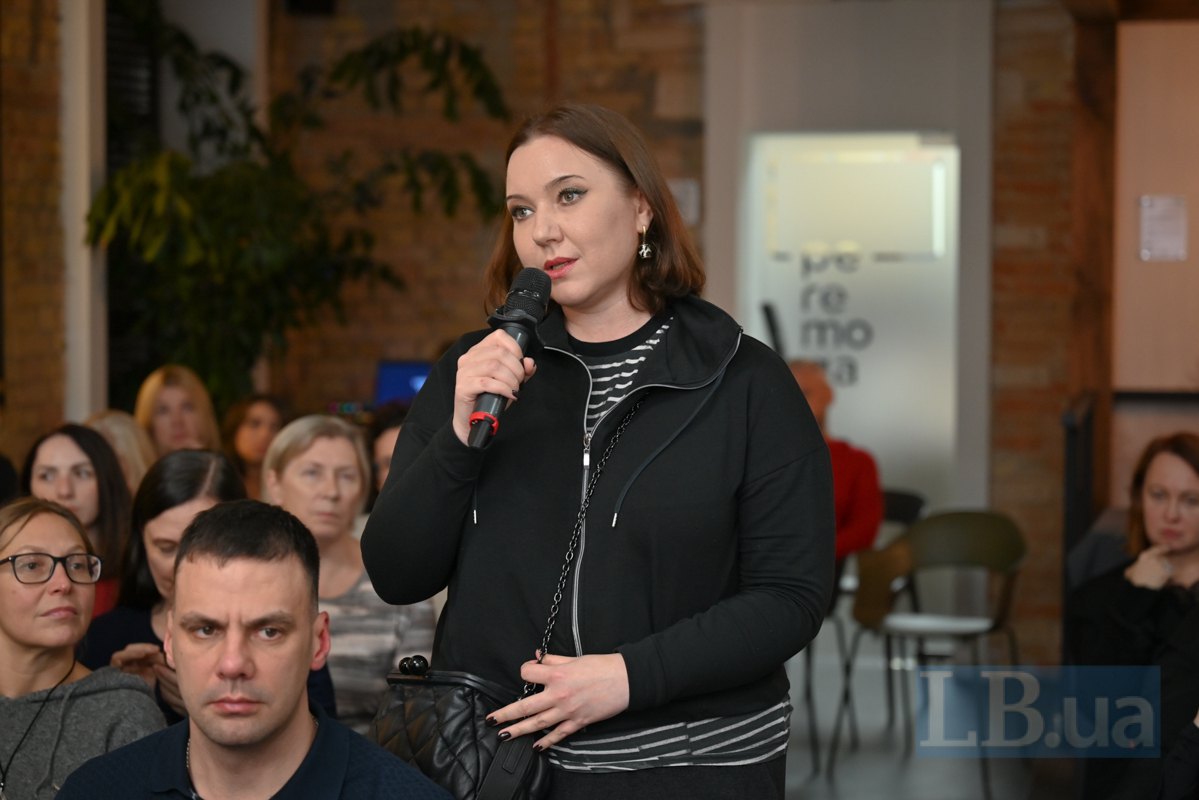
However, other speakers disagreed with this opinion, which sparked some debate. But that is precisely why such events exist. Traditionally, all LB Talks events also feature full-fledged participants in the discussion. Director Tamara Trunova shared her experience of adapting the play Confronting the Shadow for Western audiences and Ukraine, confirming that what we show within our country is not always interesting to audiences outside it.
"In Berlin, we premiered a play called ‘Confronting the Shadow’ in the summer. It was a play written specifically for German audiences. It was the first project of its kind in my life. I don't know if anyone has done anything similar in Ukraine. The project has been going on for a year and four months. We already have experience of staging productions in Germany. We also have experience of quite serious and honest discussions. So we have an idea of what the German audience expects. We did a special premiere there and received very good reviews in the press. This is a complex play, a very uncomfortable play, which may not guarantee continuity of dialogue and mutual masterful relations, but, on the contrary, the termination of these relations, because it compromises cultural policy as such, in its current state, at least from the point of view of theatre. The play tries to turn the tables, it tries to undermine expectations of each other and Ukrainians not only as a stereotype in the eyes of Germans, but also in the eyes of Ukrainians.”
The director noted that when Ukrainians meet with other Europeans without cover or masks in an attempt at cultural dialogue, it often turns out that there is a gap, a shadow, in their values. This is what the play Confronting the Shadow is about.
Tamara Trunova concluded that at the current stage of cultural diplomacy, it is important not to count the number of concerts, but to engage in long-term cooperation.
"We need to move away from event-driven activities and immerse ourselves in something that has a truly long-lasting effect, which, unfortunately, Russian cultural diplomacy has for us due to its continuity.”
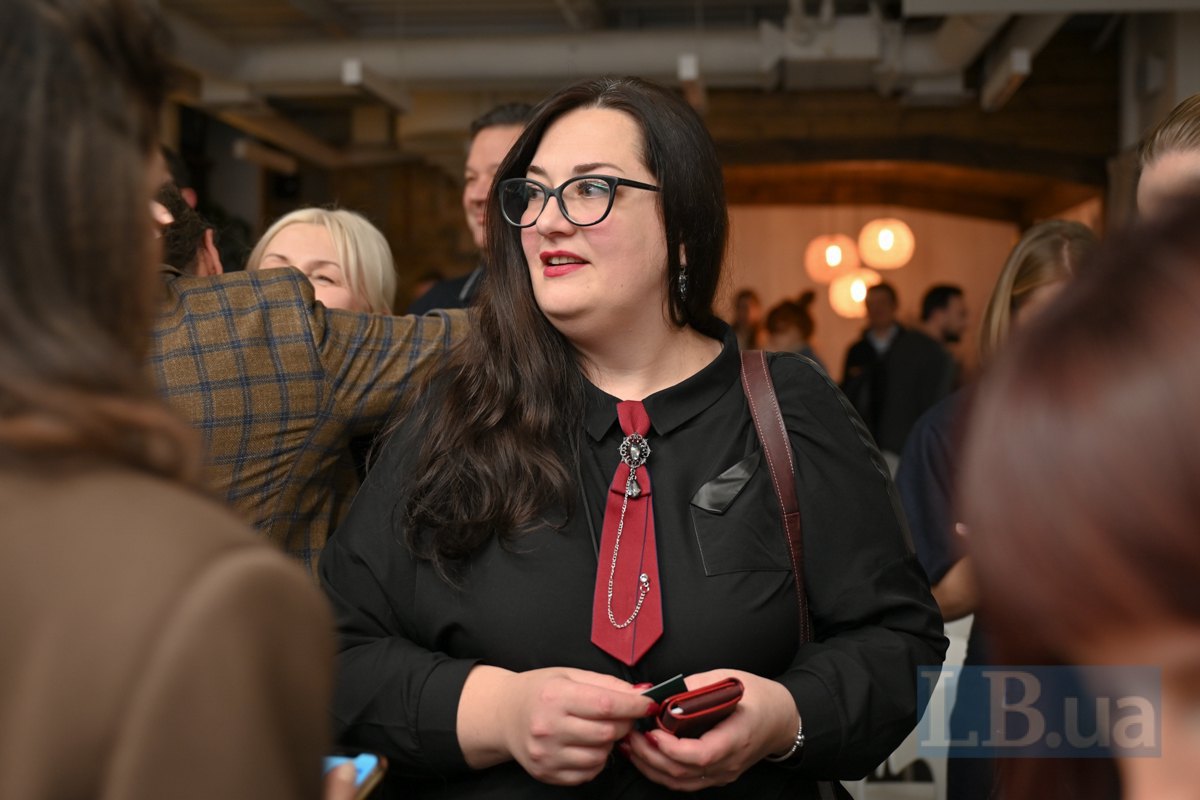
The Ukrainian Book Institute also analyses what messages Ukrainian literature and related fields convey about themselves to the world. International cooperation manager Olena Odynoka shared her approaches to this work.
"The last fair we organised participation in this year was the Frankfurt Book Fair. It was very successful, according to the feedback. Our slogan was the concept of 'feeling in', as a supplement to show that Ukrainian literature has always been in this space. It's just that these names were suppressed, they were all hidden behind the wall of the empire. Our visual identity also reflected this, because Vasyl Krychevskyy's graphics appeared from behind the falling wall. It had a very good visual effect on the foreign audience. We received a lot of positive feedback from foreigners, and it is still going strong. We will take this identity and slogan to other fairs next year to ensure continuity and recognition."
Continuing the discussion, Oksana Markarova reminded us of the power of horizontal ties and that they are often much more influential in cultural diplomacy than the official level.
"I don't think the state should tell us what to do; we need to synchronise, using a specific set of messages appropriately, depending on the situation. We are developing our horizontal ties, working with the UN, OSCE, Council of Europe, UNESCO, and parliaments of a number of countries," Andriy Rizol agreed with his colleague.
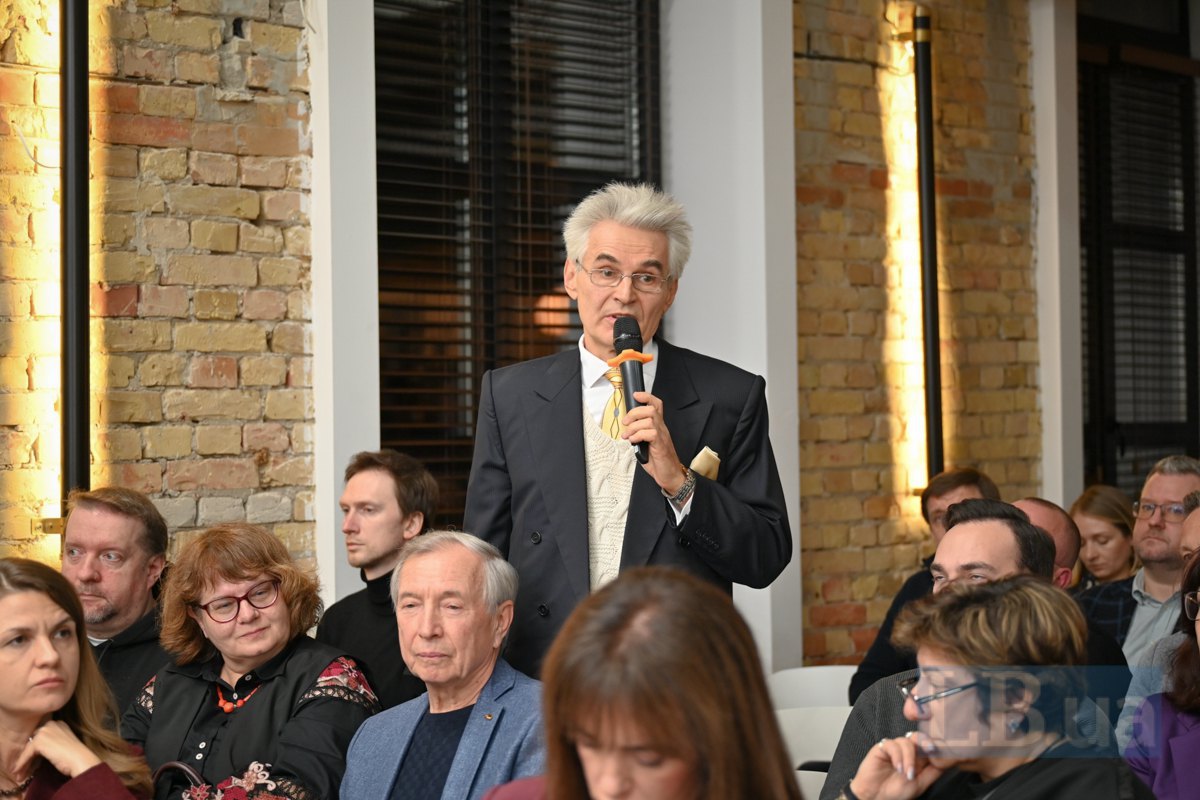
The hall was attended by People's Artist of Ukraine, conductor Herman Makarenko, who, together with Professor Mykola Prodachuk and his team, became a co-founder of the project Returning to the World of Dmytro Bortnyanskyy's First Opera ‘Creonte’.
"At the age of 25, a young composer from Hlukhiv, Dmytro Bortnyanskyy, wrote his first opera, 'Creonte', based on Sophocles. The freedom-loving Bortnyanskyy changed the ancient Greek tragedy. The opera premiered in Venice in 1776. The entire season was a huge success, and then the sheet music simply disappeared. For almost 250 years, humanity believed that Bortnyanskyy was the author of six operas and that the first, Creonte, had been lost forever. We disagreed with this, and the sheet music was found in 2023 in the library of the Royal Cathedral in Lisbon. It was brought to Ukraine by Lviv musicologist Olha Shumilina, and then the stage of returning this opera began.”
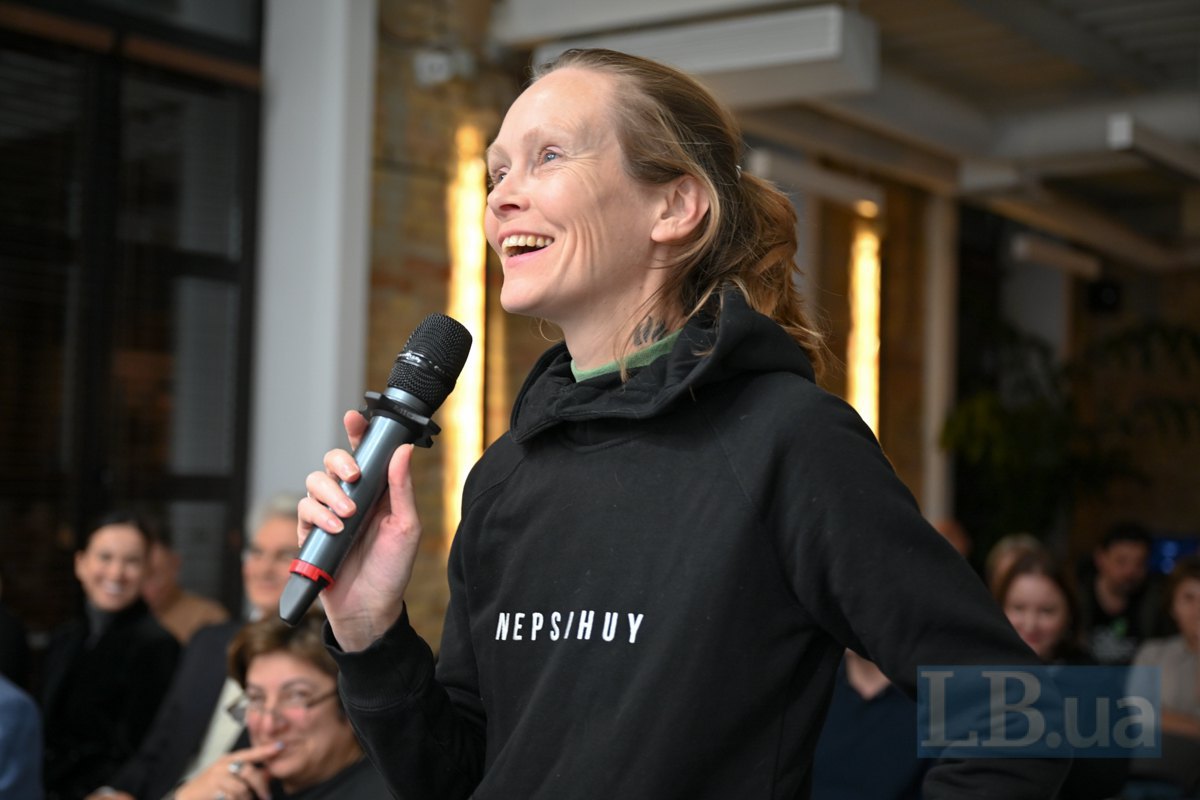
Olena Honcharuk, director of the Dovzhenko Centre, continued the theme of memory. From August to November, the centre hosted a large exhibition project by Dutch war photographer Eddy van Wessel, who documented the lives of civilians and military personnel in Ukraine. This is a case where a foreigner looks at our experience through his own perception and empathy. The exhibition has been extended and can be visited on weekends.
"What Eddy van Wessel did, visiting Ukraine 15 times, spending time with the military and civilians, was to capture people's lives. And he always said that he was interested in being where people are at a turning point. This 'edge' is very important to him. That's why he's a person who isn't afraid to look people in the eye."
Olena also stressed that, in addition to paying attention to external processes, Ukrainian society needs to find opportunities to work with internal ones.
"We simply have a lot of tasks: we have to fight, be politicians, get into universities and important institutions. We need to produce content, but isn't the meaning lost? Do we have the opportunity to work with this darkness inside, which we can raise through studying our heritage, through documents, through delving into our own past? To understand it better and prevent internal disasters, because they also shake us from within. That is why we produce a lot of cultural products, but will we find the opportunity to work with ourselves, because there is never time for ourselves."
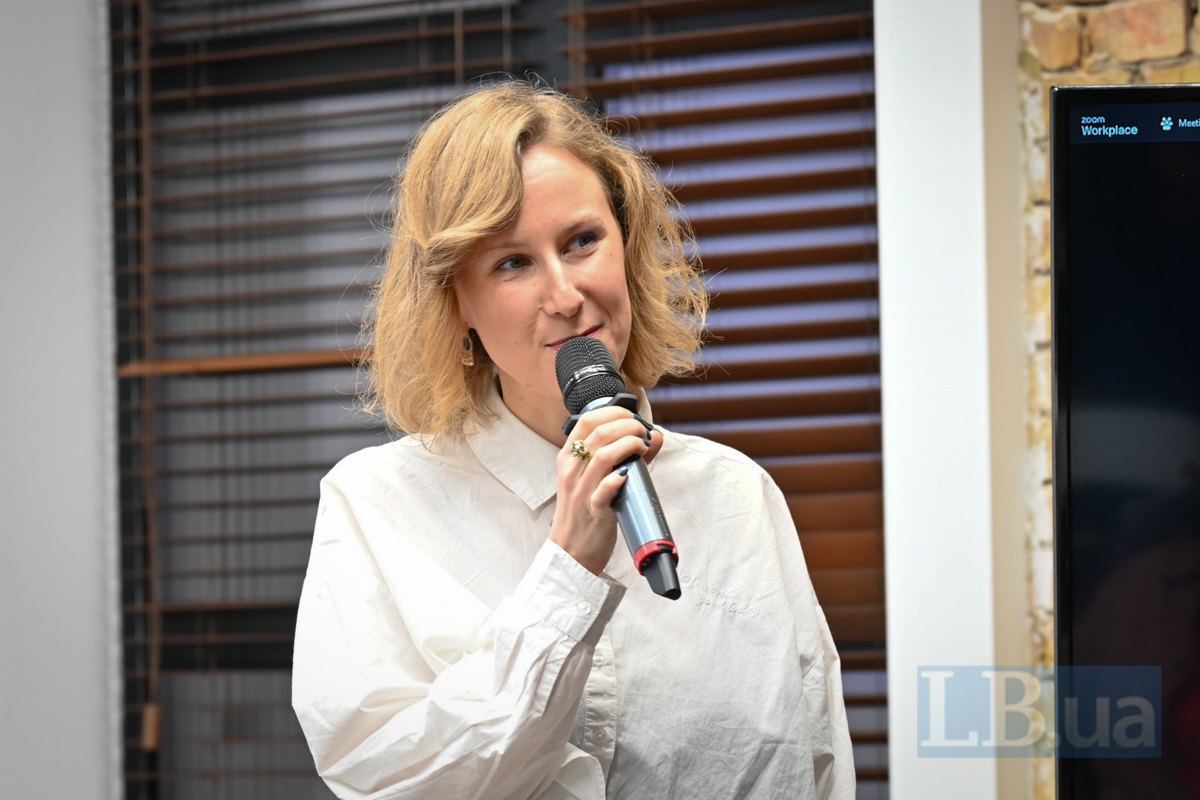
CultHub editor Kateryna Hladka summed up the conversation by recalling the words of religious studies professor Ihor Kozlovskyy: it is a great illusion when a person considers themselves perfect, because then there is nothing left to strive for and develop. Instead, a person is a process, so there is always room to move forward.









